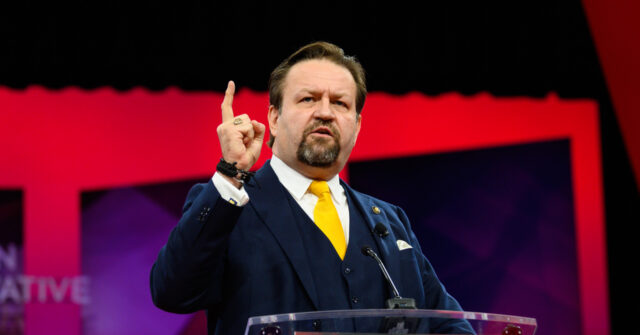In a recent discussion on Breitbart Fight Club, Dr. Sebastian Gorka, a prominent strategist closely associated with Donald Trump, highlighted the potential for pro-nation state movements in Europe to challenge the existing globalist framework. Gorka emphasized the importance of grassroots political strategies, aligning them with the successful approach of Trump’s campaign. He deemed the political climate in Europe as “super exciting,” noting that movements representative of public sentiments, such as Brexit, the rise of Giorgia Meloni in Italy, and the Make America Great Again (MAGA) campaign, indicate a desire for more accountable government. The critical questions Gorka raised centered on whether these movements possess the technical expertise to both secure victories and govern effectively.
In the U.K., Nigel Farage is actively working to replicate Trump’s successful political strategy through his Reform UK party. Following a strong performance in the July general election, where Reform garnered over four million votes, Farage faces the challenge typical of the British first-past-the-post electoral system, which often results in a significant imbalance between popular votes and parliamentary representation. To enhance the party’s effectiveness, Farage is focusing on developing a robust ground game akin to the strategic operations of the Liberal Democrats. This effort has been fortified by the recruitment of high-profile individuals, like former tech entrepreneur Zia Yusuf and billionaire property developer Nick Candy, who aim to professionalize and financially support the party, thereby positioning it for a stronger challenge against established parties such as the Conservatives and Labour.
Across Europe, similar attempts to harness Trump-like strategies are visible, particularly with leaders such as Jordan Bardella of France’s National Rally party. Bardella’s adept use of social media was a key factor in his recent electoral victories, drawing parallels to Trump’s campaign perception. With the waning popularity of President Macron and a rise in support for Marine Le Pen and her party, there exists a strong prospect for a political shift by the next presidential election in France. This rising wave of populism across the continent is fueled largely by an increasingly hostile public sentiment towards mass migration policies, a common thread linking many right-wing movements against the broader context of globalization.
Gorka also pointed out that the backlash against the pro-mass migration policies prevalent among globalists aligns with the sentiments expressed by the American electorate during Trump’s rise. This cross-continental shift towards skepticism of open borders reflects a growing protective nationalism as more voters demand greater control and security over migration and its impacts. Notably, Geert Wilders in the Netherlands has successfully leveraged anti-migration sentiment to reclaim significant political influence, underscoring how this issue resonates deeply with voters frustrated by current policies.
As the conversation progressed in the Founders Roundtable, Breitbart’s Alex Marlow articulated the prevailing sense of dissatisfaction with traditional establishment governments, particularly in Western Europe. Marlow likened the current political climate in the U.S. to these historical European models, suggesting that American liberal ideologies have increasingly lost their appeal with both national and international electorates. The evolving political landscape in Europe serves as both an inspiration and a cautionary tale for American political movements, providing valuable insights into effective alternative strategies to confront and potentially replace established political paradigms.
Ultimately, the discussion illuminated a potential pivot in the political strategies employed by pro-nation state movements in Europe. With a focus on targeted grassroots organization, effective use of social media, and a unifying stance against mass migration, these movements appear poised for greater electoral success. By drawing from the lessons learned during Trump’s tenure, European populist leaders are strategically crafting their paths forward, indicating a broader shift towards national sovereignty and away from globalist ideals. As these dynamics continue to evolve, the implications for both European politics and transatlantic relations remain significant and warrant close observation.

